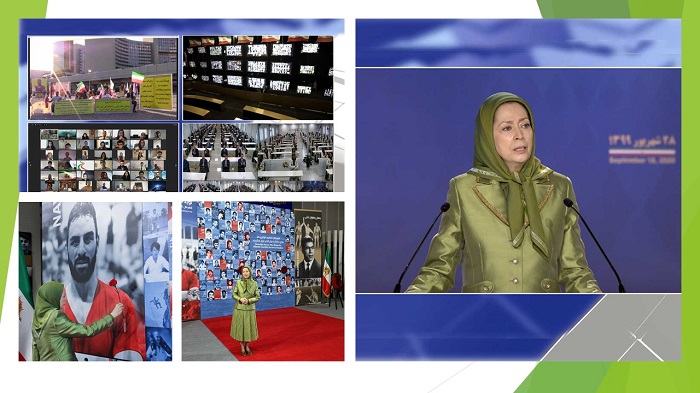
(PMOI / MEK Iran) and (NCRI): Navid Afkari’s Execution Prominent in Recent NCRI Virtual Summit.
September 12 marked the first anniversary of the execution of Iran’s wrestling champion Navid Afkari. Yet, on September 20, the world community will let Ebrahim Raisi, a major human rights violator, speak at the United Nations General Assembly, according to the Iranian opposition, the National Council of Resistance of Iran (NCRI), and the People’s Mujahedin of Iran (PMOI / MEK Iran).
Iran protests of 2018
During the big Iran protests of 2018, Navid Afkari and his two brothers were arrested in Kazeroun. Navid was falsely accused of assassinating a security guard based on a month-long confession obtained through torture. Navid had filed an appeal with the court after denying killing the security guard.
Nonetheless, Ebrahim Raisi, the then-Judicial Chief, dismissed the appeal. Navid was executed without due process and in the face of international criticism.
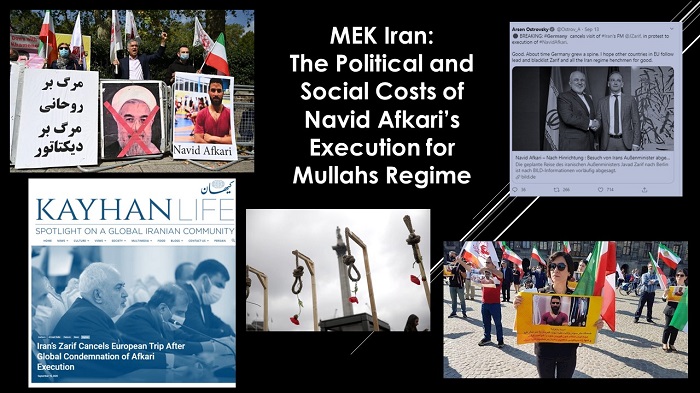
(PMOI / MEK Iran) and (NCRI): The Political and Social Costs of Navid Afkari’s Execution for Iran’s Mullahs.
Vahid Afkari’s plea for a retrial was dismissed
Vahid Afkari’s plea for a retrial was dismissed by the regime’s Supreme Court, according to his lawyer. Despite the inconsistencies in the case, the Afkari brothers’ lawyer, Saeid Dehghan, tweeted that the Supreme Court’s 38th branch had dismissed their request for a retrial.
“Even if they just skimmed through the case document, there were enough legal reasons to accept a retrial because the verdict contains 24 contradictions and three lies,” Dehghan stated, “because the verdict contains 24 contradictions and three lies.”
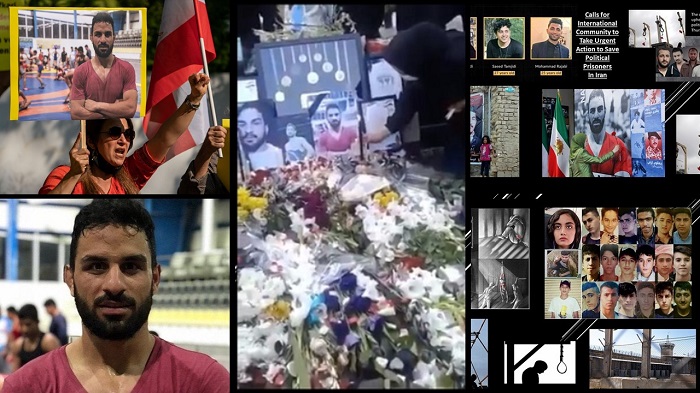
(PMOI / MEK Iran) and (NCRI): Struan Stevenson Condemns Execution of Navid Afkari, Urges EU to Take Firm Stance Against Regime
Mistreating political detainees
Mistreating political detainees, assassinating them in secret, and breaching international laws have all been part of the regime’s strategy. When it comes to dealing with political detainees, Raisi, who is currently the regime’s president, is well-known for adopting the regime’s stance.
He began his career as a prosecutor for the dictatorship in the 1980s, where he handed down a number of death sentences. As a member of the so-called “death commission.” he took part in the slaughter of political detainees in Tehran in the summer of 1988.
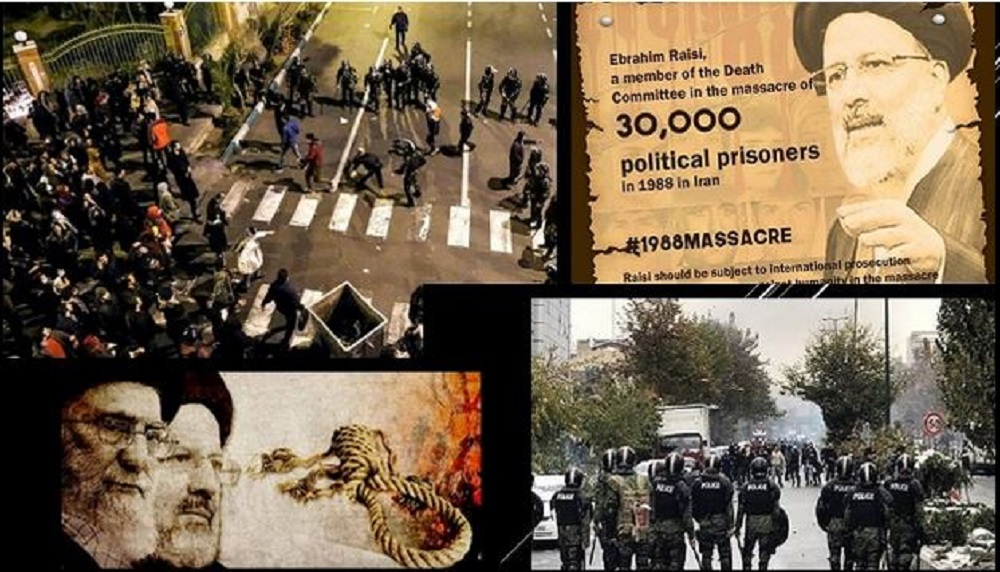
(NCRI) and (PMOI / MEK Iran): Raisi must face justice in an international tribunal.
Raisi’s appalling human rights record
Raisi’s appalling human rights record aided him in being the Supreme Leader’s presidential candidate of choice.
When Ebrahim Raisi was chosen as the regime’s new president on June 19, Amnesty International Secretary General Agnès Callamard said, “That Ebrahim Raisi has risen to the presidency instead of being investigated for the crimes against humanity of murder, enforced disappearance, and torture is a grim reminder that impunity reigns supreme in Iran.”
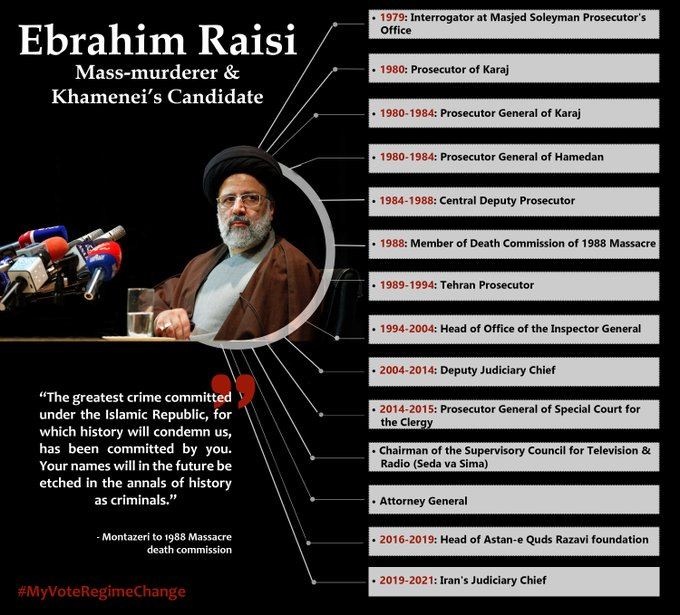
(NCRI) and (PMOI / MEK Iran): Iranian regime’s supreme leader Ali Khamenei and Ebrahim Raisi.
The supremacy of “impunity” in Iran
The supremacy of “impunity” in Iran has devastating implications for the country’s overall human rights situation. Ms. Callamard was one of seven UN human rights experts who argued in December that the impunity came from the international community’s apathy in the aftermath of the massacre in 1988.
The international community’s failure to act, they claimed, had a “devastating impact” on Iran’s overall human rights situation.
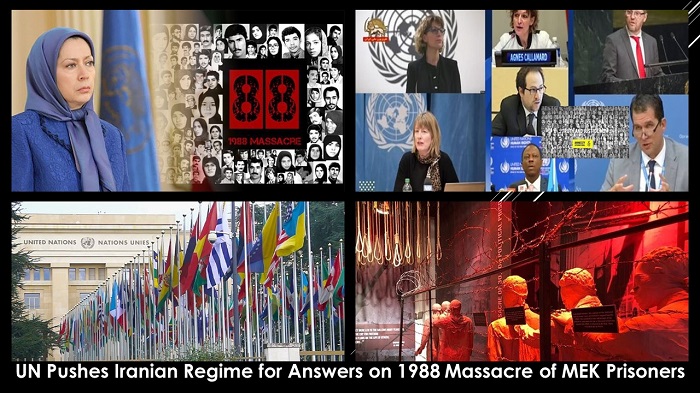
(NCRI) and (PMOI / MEK Iran): U.N. Urged to Investigate 1988 Massacre of Political Prisoners in Iran.
Iranian demonstrators in November 2019
The execution of Navid and other political prisoners, as well as the killings of Iranian demonstrators in November 2019, are recent examples of the tragic impact of the international community’s silence and Iran’s impunity crisis.
Criminals like Raisi would not have been able to rise to positions of power if the west had exerted pressure on the religious dictatorship, and many families, including Afkari’s, would not have been torn apart.
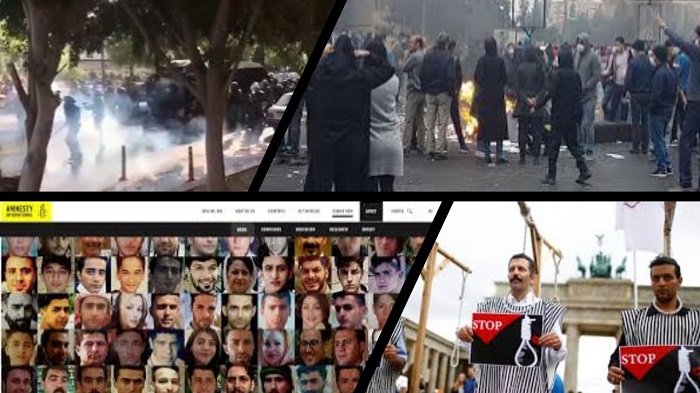
(NCRI) and (PMOI / MEK Iran): The MEK confirmed that more than 1,500 people were killed by security forces in Iran.
MEK Iran (follow us on Twitter and Facebook)
and People’s Mojahedin Organization of Iran – MEK IRAN – YouTube
